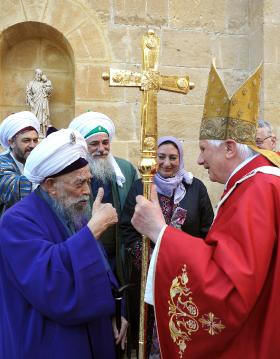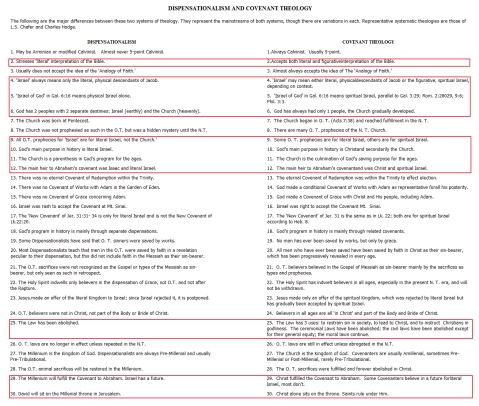
Q.What did Shaykh Nazim al-Qubrusi demonstrate by meeting Pope Benedict XVI?
A. Bismillahir Rahmanir Raheem. Mawlana demonstrated that in this time, to advance peace, it is better for Muslims to also befriend advocates of the Covenant theology among ideologically motivated Christians, over those who believe in Dispensationalism theology.
His Holiness Pope Benedict XVI advocates Supersessionism (also called fulfillment theology or replacement theology); a Christian interpretation of New Testament which claims God’s relationship with Christians and the Church (Catholic) as being either the “replacement” or “fulfillment” or “completion” of the promise made to the Israelites, while Christian dispensationalists (Christian Zionists) typically recognize the modern state of Israel’s existence as God revealing His Will for the Last Days.
While acting as prefect for the Congregation for the Doctrine of the Faith, Pope Benedict XVI wrote: “God, according to the Prophet, will replace the broken Sinai covenant with a New Covenant that cannot be broken . . . . The conditional covenant, which depended on man’s faithful observance of the Law, is replaced by the unconditional covenant in which God binds himself irrevocably.”
Dispensationalists believe that the nation/race of Israel is distinct from the Christian Church, and that God has yet to fulfil His promises to them. These promises include the land promises, which in the future result in a millennial kingdom where Christ, upon His return, will rule the world from Jerusalem for a thousand years.
Political analyst Richard Allen Greene has argued that dispensationalism has had a major influence on the foreign policy of the United States. This influence has included continued support for the state of Israel.
Political commentator Kevin Phillips points out in his book American Theocracy (2006) how dispensationalists and other fundamentalist Christians, together with the oil lobby, have provided political support for the invasion of Iraq in 2003, without approval of the United Nations.
Click on the image below to gain a better understanding of the main basic differences between Dispensationalism and Covenant Theology.


